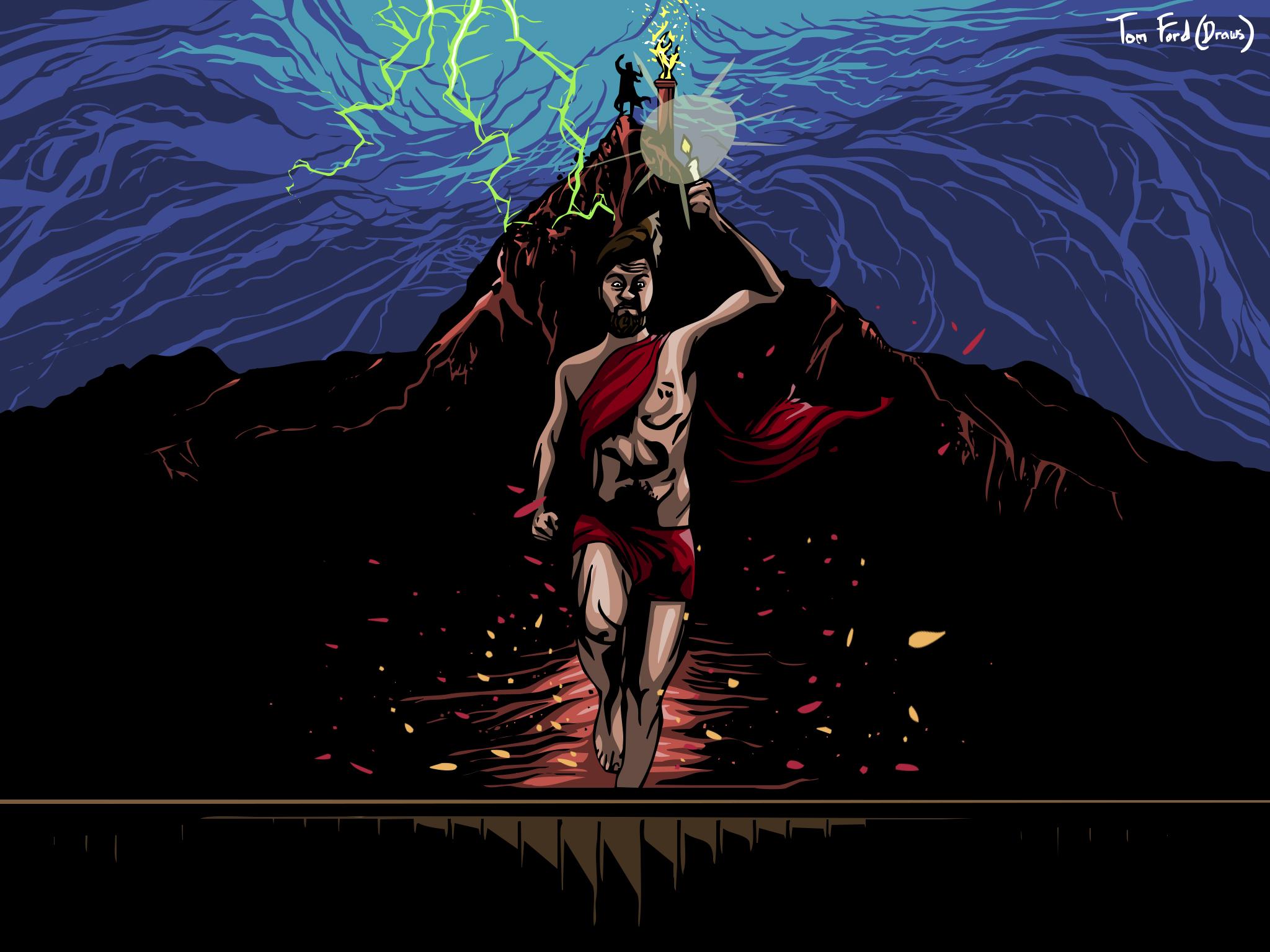‘My children grew up on Marvel... but I grew up on Greek myths’
Continuing his series, stand-up comedian Dan Antopolski recalls his childhood quest to become the Titan trickster of Greek mythology


Your support helps us to tell the story
From reproductive rights to climate change to Big Tech, The Independent is on the ground when the story is developing. Whether it's investigating the financials of Elon Musk's pro-Trump PAC or producing our latest documentary, 'The A Word', which shines a light on the American women fighting for reproductive rights, we know how important it is to parse out the facts from the messaging.
At such a critical moment in US history, we need reporters on the ground. Your donation allows us to keep sending journalists to speak to both sides of the story.
The Independent is trusted by Americans across the entire political spectrum. And unlike many other quality news outlets, we choose not to lock Americans out of our reporting and analysis with paywalls. We believe quality journalism should be available to everyone, paid for by those who can afford it.
Your support makes all the difference.When I was young I loved the Greek myths – I read them and read them. They taught me many things: how to end a siege with a wooden horse, how the 12-task limit is a natural productivity boundary and how to steal fire from the gods in a fennel stalk. Some of these lessons have found more practical application than others – when grilling, for example, it is very nice to lightly char some fennel when you have remembered to buy some. I char mine in tribute to Prometheus, stealer of fire – the game-changing kickstarter of civilisation itself – and to Mnemosyne, goddess of remembering to buy fennel.
The world of Perseus, Odysseus and Heracles was to me what the Marvel cinematic universe is to my children, though admittedly without Ruffalo. I loved the harsh adventures of the heroes, I loved the strong and capable goddesses. I loved that Zeus, father of the gods, was a dick, a compulsive philanderer in a hostile marriage with his sister Hera, the pair of them playing with mortal destinies in a tactical game of mutual annoyance. My brother and I were not married to each other but as siblings we could relate well to their petty strivings and the irony of their vengeful own goals.
I was 12. At the end of my mum’s garden was a shed and behind the shed a tree. The tree had grown forward from the rear fence and one of its limbs had started pressing down on the shed roof: it needed tree surgery, lest it compromise the roof and an ingress of rain trouble the lawnmower.
There wasn’t a bloke in our house so I was sent to fetch our neighbour, a nice man who had tools. He brought his saw over, climbed the logs behind the shed and onto the roof and asked me to fetch him a candle. I was proud to be entrusted with this auxiliary role in the manly task and swore silently by all the gods that I would discharge my duty to the best of my ability.
I went inside and looked for a candle in the usual places but couldn’t find one. I hunted high and low, a quest that took me all over the house, cursing the invention of electric light, until finally in the back of a utensil drawer I grasped my prize. I lit it and brought it out into the garden. The flame blew out. I went back inside and relit it. It blew out again. After several more attempts I managed to nurture the living flame down the garden, behind the shed and up onto the logs, passing it up to him with pride. Was there anything more sacred than a man-in-training fetching fire for an elder? I thought too of Prometheus the good Titan and the fraught circumstances of his precious gift.
When he took pity on huddled mankind and smuggled fire, according to varying legends, from either Zeus’s thunderbolt, Hephaestus’s smithy, Helios’s sun chariot or Athena’s zippo – and gave it to man, he levelled the playing field between man and the Olympians, a betrayal of caste which Zeus did not forgive. Enraged, Zeus sent Woman to vex and distract Mankind with her beautiful hair and daringly low-cut pay.
He punished the Titan too, by having him chained to a rock, with an eagle visiting him every day to devour his liver, which would regrow between meals. As any child offered an endlessly replenished supply of liver might tell you, it is hard to know which party deserves more compassion, the prisoner writhing in daily agony or the eagle, resentful at the monotony of that protein-heavy diet. Perhaps when the eagles call out high overhead, they are shouting “Carbs! Carbs!”
Balancing on the logs in my mum’s garden, I was flushed with success. Having borne and protected the flame from my house, was I not a modern-day Prometheus, or at least a faithful servant of Hestia, goddess of the hearth? I felt that I was becoming a man that day, through that simple act, as I reverently handed the holy fire to that good man who dwelt nigh.
He received the candle from me and gave me a long look – perhaps through my quest I had transformed slightly in his eyes. Then he blew it out and started waxing the sawblade with it.
Shame at my ignorance of male lore filled me and I went very red. Why would he have needed candlelight in broad daylight? Stupid, stupid. Why not get him a quill as well, in case the fancy took him to pen a sonnet? Oh my god, I wanted to vanish into the ground. My brother had better not find out or I’d never hear the end of it.
And so, not by fire but by shame am I become Prometheus. For at the memory of my youthful, romantic error, even now I feel embarrassed, as if an eagle is sent anew to peck excruciatingly at my liver.
Join our commenting forum
Join thought-provoking conversations, follow other Independent readers and see their replies
Comments